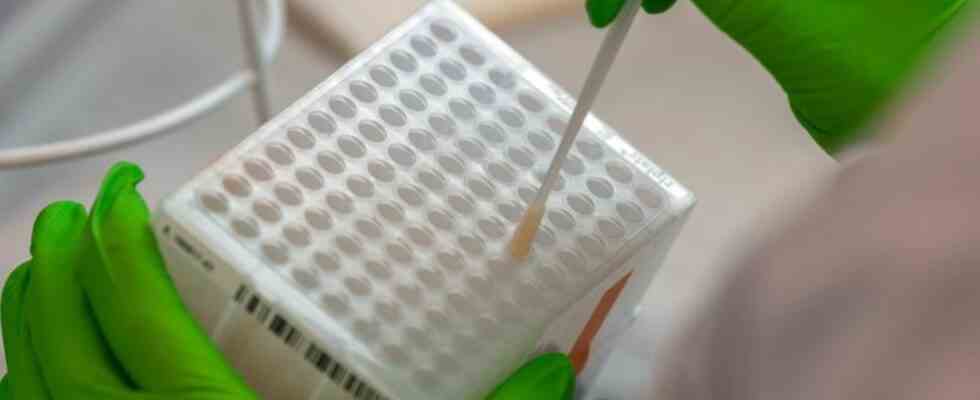blood cancer
The number of registered stem cell donors is falling sharply
People over the age of 61 are no longer eligible for stem cell donation. photo
© Robert Michael/dpa-Zentralbild/dpa
Every twelve minutes someone in Germany is diagnosed with blood cancer. For many of those affected, only a stem cell transplant can help. But the number of registered donors is falling.
In the current year, around 125,000 potential donors will be removed from the stem cell donor database of the Tübingen organization DKMS. The high decline is age-related, as the DKMS announced on the occasion of World Cancer Day this Saturday. The experts are therefore sending an urgent appeal to register as a donor.
From the 61st birthday it is no longer possible to be listed as a donor in the international search registers, explains Konstanze Burkard, who is responsible for recruiting new donors at DKMS. The reason is medical: “Scientific evaluations have shown that the chances of success of a stem cell transplant decrease as the donor ages, because the donated blood stem cells take up their function in the recipient much more slowly and less successfully.”
Appeal to young people
That is why the call from the DKMS is aimed primarily at young people. “A simple registration is the first step to give patients hope and maybe even save a human life,” says Konstanze Burkard. “Young people in particular are in demand, because they are particularly likely to be considered for a stem cell donation for medical reasons and will remain in the international search for many years to come.”
DKMS stands for German Bone Marrow Donor File. However, the organization operates globally. Since 1991, DKMS has arranged more than 100,000 stem cell donations in 57 countries worldwide. More than 7.4 million people from Germany and around 4 million international donors are currently listed in the file. A lot at first glance, but finding a suitable donor is extremely difficult, even if the search is worldwide. The same applies to stem cell donations: the more potential donors, the greater the choice and the higher the probability of finding a suitable donor.
In Germany, one person is diagnosed with blood cancer every twelve minutes on average, and around 19,500 people die from the disease here every year. Once the diagnosis has been made, the race against time begins, says Konstanze Burkard. “For many, the only chance of survival is to find a suitable donor as quickly as possible.”

